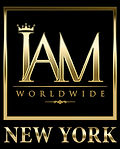Hypertension Solutions and Steps You Can Take to Support Heart Health
- Aileen Fernando
- Oct 15, 2025
- 4 min read
Maintaining a healthy heart is essential for overall well-being and longevity. Heart disease remains one of the leading causes of death worldwide, but many of its risk factors are controllable. By adopting certain lifestyle changes and understanding how to manage your blood pressure, you can significantly reduce your risk of heart-related complications. This article explores practical steps and effective hypertension solutions to help you support your heart health.
Understanding Hypertension Solutions for a Healthy Heart
Hypertension, or high blood pressure, is a common condition that puts extra strain on your heart and blood vessels. Over time, this strain can lead to serious health problems such as heart attacks, strokes, and kidney disease. Fortunately, there are many hypertension solutions that can help you keep your blood pressure within a healthy range.
Some of the most effective strategies include:
Eating a balanced diet rich in fruits, vegetables, whole grains, and lean proteins.
Limiting salt intake to reduce fluid retention and lower blood pressure.
Engaging in regular physical activity such as walking, swimming, or cycling.
Maintaining a healthy weight to reduce the workload on your heart.
Avoiding tobacco and limiting alcohol consumption to protect your cardiovascular system.
By incorporating these habits into your daily routine, you can improve your heart health and reduce the risk of hypertension-related complications.

What is the Danger Zone for Blood Pressure?
Blood pressure is measured using two numbers: systolic (the pressure when your heart beats) and diastolic (the pressure when your heart rests between beats). Understanding what constitutes a dangerous blood pressure level is crucial for preventing heart damage.
Normal blood pressure is generally considered to be below 120/80 mm Hg.
Elevated blood pressure ranges from 120-129 systolic and less than 80 diastolic.
Stage 1 hypertension is 130-139 systolic or 80-89 diastolic.
Stage 2 hypertension is 140 or higher systolic or 90 or higher diastolic.
Hypertensive crisis is when blood pressure exceeds 180/120 mm Hg and requires immediate medical attention.
Being aware of these categories helps you recognize when your blood pressure is in the danger zone and when to seek medical advice. Regular monitoring at home or during doctor visits is essential for early detection and management.

Lifestyle Changes to Support Heart Health
Making lifestyle changes is one of the most effective ways to support your heart and manage blood pressure. Here are some actionable recommendations:
Adopt the DASH Diet
The Dietary Approaches to Stop Hypertension (DASH) diet emphasizes fruits, vegetables, whole grains, and low-fat dairy. It limits saturated fat, cholesterol, and sodium. Studies show that following the DASH diet can lower blood pressure significantly.
Exercise Regularly
Aim for at least 150 minutes of moderate-intensity aerobic exercise per week. Activities like brisk walking, swimming, or cycling improve heart function and help maintain a healthy weight.
Manage Stress
Chronic stress can raise blood pressure. Techniques such as meditation, deep breathing exercises, yoga, or even hobbies can help reduce stress levels.
Limit Alcohol and Quit Smoking
Excessive alcohol intake can increase blood pressure. Smoking damages blood vessels and accelerates heart disease. Reducing alcohol and quitting smoking are critical steps for heart health.
Get Enough Sleep
Poor sleep quality and sleep apnea are linked to high blood pressure. Aim for 7-9 hours of restful sleep each night.
By integrating these changes, you create a strong foundation for a healthy heart and better blood pressure control.

The Role of Medication and Regular Checkups
While lifestyle changes are vital, some individuals may require medication to control their blood pressure effectively. Doctors prescribe antihypertensive drugs based on individual health profiles and blood pressure levels.
It is important to:
Take medications exactly as prescribed.
Attend regular checkups to monitor blood pressure and adjust treatment if necessary.
Discuss any side effects or concerns with your healthcare provider.
Regular medical supervision ensures that your hypertension solutions are tailored to your needs and that your heart remains protected.
How to Incorporate Managing High Blood Pressure into Your Routine
One of the most important aspects of supporting heart health is consistent monitoring and management. For those dealing with hypertension, managing high blood pressure involves a combination of lifestyle changes, medication adherence, and regular health assessments.
Here are some tips to help you stay on track:
Keep a blood pressure journal to record your readings and note any symptoms.
Set reminders for medication and doctor appointments.
Educate yourself about hypertension and heart health.
Seek support from family, friends, or support groups.
By staying proactive and informed, you can take control of your heart health and reduce the risks associated with high blood pressure.
Embracing Heart-Healthy Habits for Life
Supporting your heart health is a lifelong commitment. The steps outlined here provide a roadmap to reduce your risk of heart disease and improve your quality of life. Remember, small changes can lead to significant benefits over time.
Start by evaluating your current habits and identifying areas for improvement. Whether it’s adopting a healthier diet, increasing physical activity, or managing stress, every positive action counts. Regularly consult with healthcare professionals to ensure your heart health plan is effective and safe.
Your heart works tirelessly for you - give it the care and attention it deserves.
By following these hypertension solutions and practical steps, you can support your heart health and enjoy a vibrant, active life.






Comments